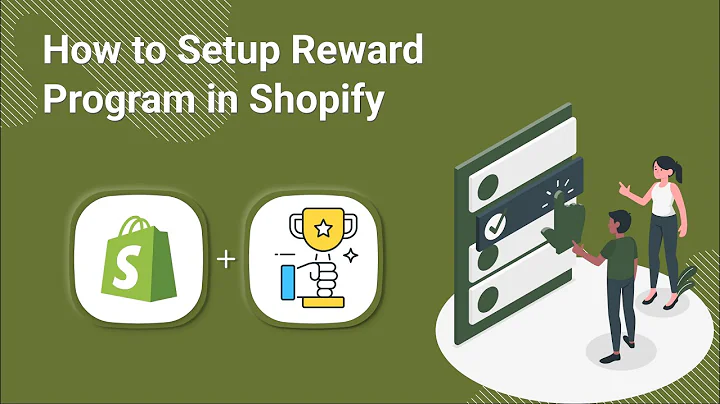How Privy Went from Small Business Marketing to Global E-commerce Success
Table of Contents:
- Introduction
- The Beginning of the Journey
- Building Apps and the Shift to E-commerce
- Early Success and Lessons Learned
- The Importance of Customer Support
- Funding and Growth
- International Expansion Efforts
- Lessons Learned from Expansion
- The Future of Privy
- Advice for Developers and Entrepreneurs
The Story of Privy: From Small Business Marketing to Global E-commerce Success
Introduction
In this article, we will delve into the fascinating journey of Ben Jaboe, the founder and CEO of Privy. Privy is a well-known leader in e-commerce marketing for small businesses and entrepreneurs. Their mission is to provide small e-commerce brands with the tools, education, and support they need to grow their online stores and build thriving businesses. With over 400,000 merchants in 180 countries and generating over $4 billion in sales, Privy has become a trusted partner for businesses worldwide.
The Beginning of the Journey
Ben Jaboe's passion for small business was ignited at a young age. Growing up in a household where both sets of grandparents and his parents were small business owners, Ben was immersed in the world of entrepreneurship. Though he wasn't a developer, his engineering background and technical abilities allowed him to assist his family in building websites, running email campaigns, and understanding the world of online advertising.
After completing his education, Ben ventured into the business world, supporting a family friend in launching a new company. This experience gave him the confidence to pursue his own ideas, leading to the creation of his first app called G Push. While it wasn't a long-term success, this venture sparked Ben's entrepreneurial spirit and motivated him to find solutions for the types of problems faced by small businesses.
Building Apps and the Shift to E-commerce
As the app market was still in its infancy in 2009, Ben and his friend successfully launched an iPhone app, becoming one of the first hundred thousand apps in the App Store. This endeavor taught them valuable lessons about execution and instilled in them the belief that they could create solutions for small business owners.
However, it wasn't until Ben discovered the world of e-commerce that his journey took a significant turn. Through conversations with an online store owner, he learned about the power of promotions, coupons, and email marketing in driving revenue. Inspired by this revelation, Ben recognized the potential to provide these essential marketing tools to e-commerce businesses.
Initially, Privy served brick-and-mortar businesses, facing its own set of challenges. It was only after discovering and integrating with Shopify that Privy found a platform to reach a broader audience and truly make an impact on the e-commerce ecosystem.
Early Success and Lessons Learned
Entering the Shopify ecosystem proved to be a game-changer for Privy. With each passing month, the number of installs grew exponentially, providing validation for their product and strategy. The ability to easily reach and support Shopify merchants allowed Privy to focus on delivering value quickly and effectively. This focus on delivering value was crucial in setting Privy apart and gaining traction in the highly competitive e-commerce market.
However, not all ventures were successful. Privy initially attempted product expansion beyond its core offering, but realized it was spread too thin and lacked the necessary resources to support these new offerings. Recognizing the need to focus on their strengths, Privy made the decision to refocus and double down on their core competency.
The Importance of Customer Support
Throughout Privy's journey, one aspect remained constant – the importance of exceptional customer support. Ben and his team quickly realized that providing an outstanding support experience was just as integral to their success as the software they developed. By prioritizing customer needs and coaching merchants through the adoption and utilization of their product, Privy established strong relationships with its user base.
Word-of-mouth referrals and positive customer experiences became powerful growth factors for Privy. Ben emphasizes the impact of delivering exceptional support, even in challenging situations where customers may be frustrated or angry. By leaning into these moments and providing a superior experience, Privy transformed disgruntled customers into loyal advocates of their product.
Funding and Growth
As Privy's distribution model and user base continued to expand, the need for additional capital became evident. Though initially faced with numerous rejections from investors, Privy's success in the Shopify ecosystem and its growing customer base justified the decision to seek external investment. This journey taught Ben valuable lessons about fundraising and positioning the company for future growth.
With its recent round of funding, Privy aims to accelerate its product development and continue its mission of solving problems for small businesses. Having surpassed 100,000 active Shopify stores and with over 60% of its customer base outside North America, Privy is poised for further growth and expansion.
International Expansion Efforts
Privy's customer base extends far beyond North America, with strong footholds in various international markets. Recognizing the global opportunity, Privy made investments to translate its dashboard and support documents into multiple languages. By providing an inclusive experience for users around the world, Privy strengthened its presence and gained a competitive advantage in foreign markets.
However, international expansion requires more than just translation. Privy continues to learn and adapt how it approaches international marketing and sales. Ben acknowledges that there is still much to explore and understand about expanding into new territories. Nevertheless, Privy remains confident that international expansion presents a significant opportunity for further growth and impact.
Lessons Learned from Expansion
Privy's expansion efforts have taught valuable lessons about entering new markets, different cultures, and diverse languages. Beyond translating the dashboard and marketing materials, the importance of offering localized support cannot be overlooked. Nurturing strong relationships with customers, regardless of their location or language, is essential for sustainable growth.
Privy's experience serves as a testament to the immense potential within the Shopify ecosystem. Developers who can identify and solve niche problems have the opportunity to become industry leaders. By focusing on delivering exceptional value and support, these developers can carve out their own space within the ecosystem and thrive.
The Future of Privy
Despite its current success, Privy believes it has only scratched the surface. With a vast customer base and the ever-evolving Shopify ecosystem, Privy sees numerous opportunities to solve more problems for small businesses. By delivering innovative solutions and continuing to address the challenges faced by merchants, Privy aims to remain a leading force in e-commerce marketing.
Advice for Developers and Entrepreneurs
Ben offers two primary pieces of advice for developers and entrepreneurs. Firstly, he emphasizes the significance of talking to customers every day. Customer feedback and support interactions are invaluable for understanding their needs and tailoring your product accordingly. Secondly, Ben encourages entrepreneurs to prioritize exceptional customer support. By providing an incredible support experience, even in challenging situations, businesses can transform frustrated customers into loyal advocates.
In conclusion, Privy's journey from a small business marketing company to a global e-commerce success story showcases the power of focusing on customer needs, delivering value, and developing strong relationships. By staying true to their mission and constantly adapting to the changing demands of the ecosystem, Privy continues to thrive and make a meaningful impact on the world of e-commerce.


















